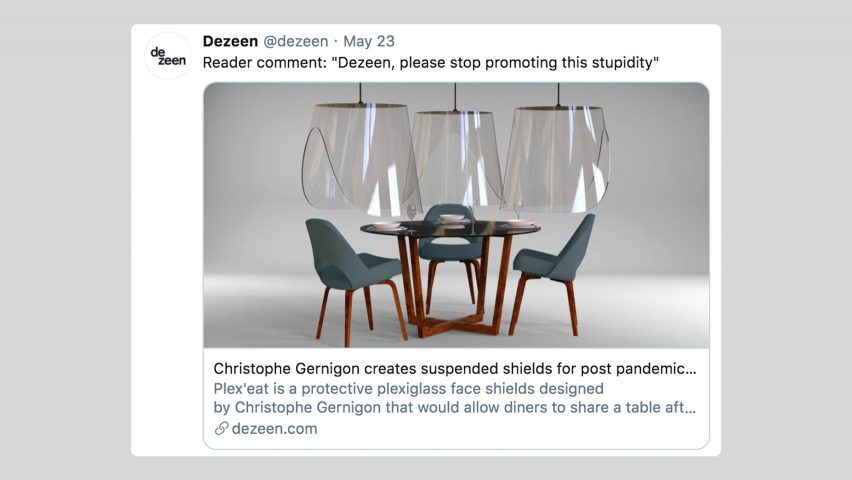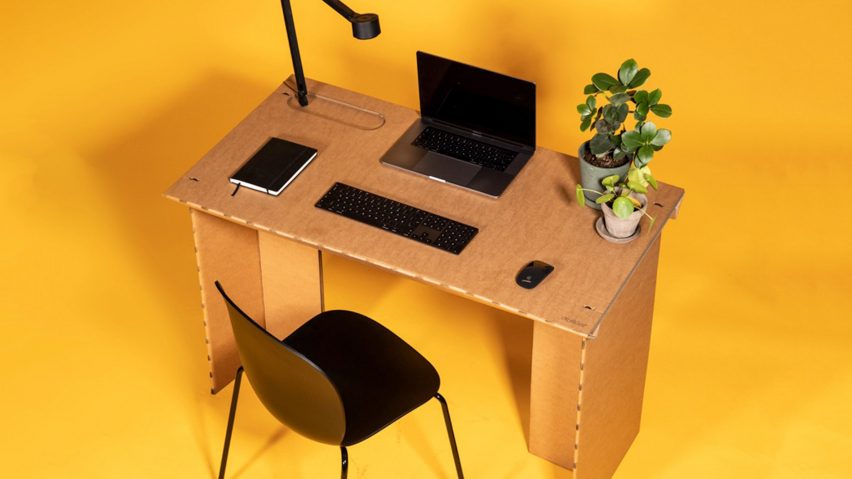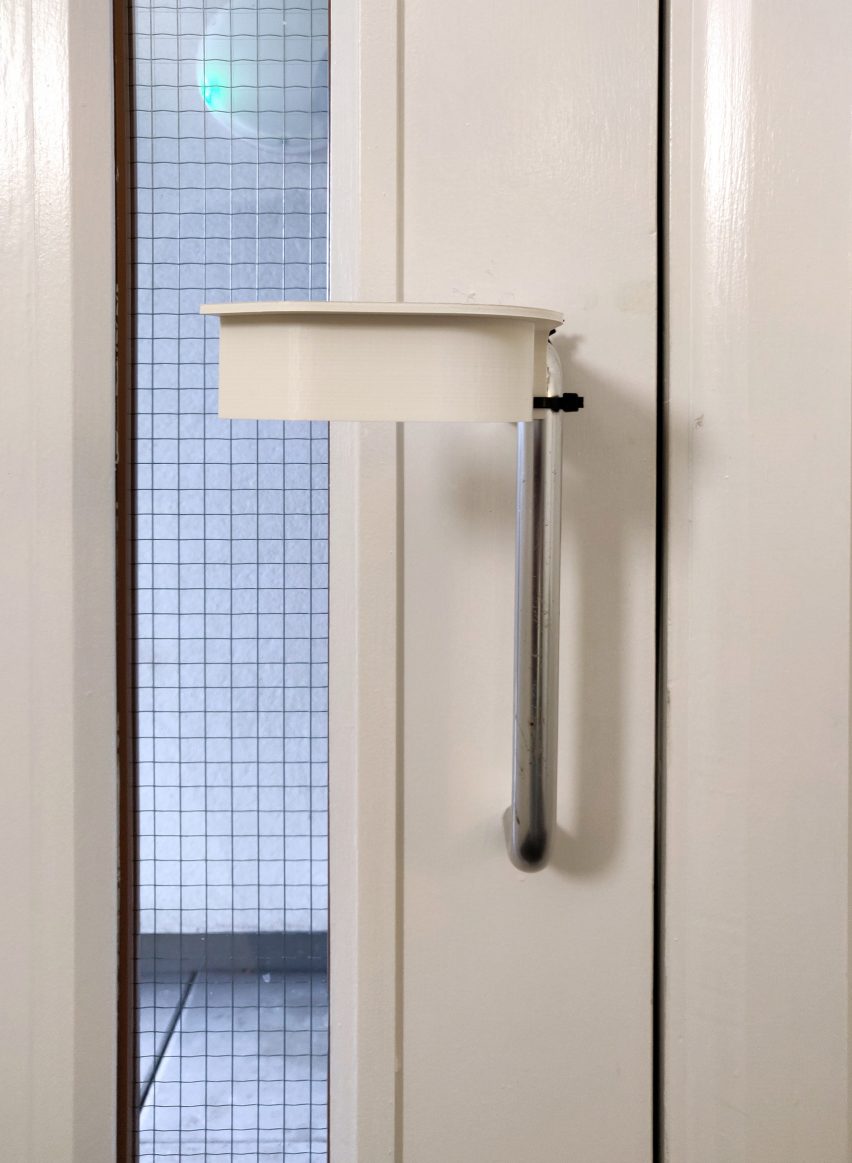
Architecture critic accuses architects and designers of "coronagrifting" with Covid-19 proposals
Architecture critic Kate Wagner has hit out at architects and designers for proposing coronavirus-related solutions, describing some of the proposals as "bullsh*t".
Writing on her blog, Wagner labelled speculative projects that respond to the pandemic as "coronagrifting".
She described Dezeen and Designboom as "the two greatest offenders of coronagrifting" for their extensive coverage of the pandemic.
"A small handful of these stories demonstrate useful solutions to Covid-related problems," wrote Wagner, who is architecture critic at The New Republic magazine and a columnist for Curbed.
"Little benefit to those at risk"
However, she claimed that the majority of these projects are "using such a crisis for shameless self-promotion and the generation of clicks and income, while providing little to no material benefit to those at risk and on the frontlines."
Designers putting forward proposals that respond to the pandemic are "tone-deaf art world creeps," she claimed.
Reader comment: "Dezeen, please stop promoting this stupidity" https://t.co/qT3zlQqYlk
— Dezeen (@dezeen) May 23, 2020
Wagner's article was triggered by a Dezeen tweet referencing a reader comment on French designer Christophe Gernigon's proposal for protecting restaurant diners by suspending transparent hoods over their heads.
"Dezeen, please stop promoting this stupidity," said the comment.
"Had enough of this bullsh*t"
"I, like the reader featured in the Dezeen Tweet at the beginning of this post, have simply had enough of this bullsh*t," wrote Wagner on her McMansion Hell blog, which covers architecture, urbanism and design.
Dezeen stories singled out for criticism by Wagner include a design for a 3D-printed hands-free door opener, a flat-pack design for home working and a conceptual bubble-like body shield.
Wagner said that "most of the prototypes and the articles about them are, for a lack of a better word, insipid."

Dezeen has published dozens of articles about corona-related design since the pandemic began, including articles on topics including masks, protective personal equipment, face shields, social distancing and intensive care units.
Some of the proposals covered are speculative ideas put forward by designers while others explore how architects and designers have worked with healthcare professionals to develop improved equipment, converted exhibition centres into hospitals or helped address poor design in the health sector.
Origins in "paper architecture" of 60s and 70s
In her article, Wagner traces the phenomenon of speculative architecture and design projects back to the 1960s and 1970s, when studios such as Superstudio, Archizoom and Archigram proposed fantastical "paper architecture" concepts that proposed new ways of living but were unlikely to be built.

Later, with the rise first of postmodernism and then digital media, this evolved into design proposals that were little more than PR, she claimed.
"What remained were merely images, the production and consumption of which has only increased as the design world shifted away from print and towards the rapidly produced, easily digestible content of the internet and social media," Wagner wrote.
"PR-chitecture"
She described the result as "PR-chitecture," which is "architecture and design content that has been dreamed up from scratch to look good on Instagram feeds or, more simply, for clicks."
"I’m sure that architects and designers are hard up for cash at a time when nobody is building and buying anything, and, as a result, many see resulting [sic] to PR-chitecture as one of the only solutions to financial problems," she wrote.
She urged designers instead to make more meaningful interventions "such as campaigning for paid sick leave, organising against layoffs and for decent severance or an expansion of public assistance, or generally fighting the rapidly accelerating encroachment of work into all aspects of everyday life."